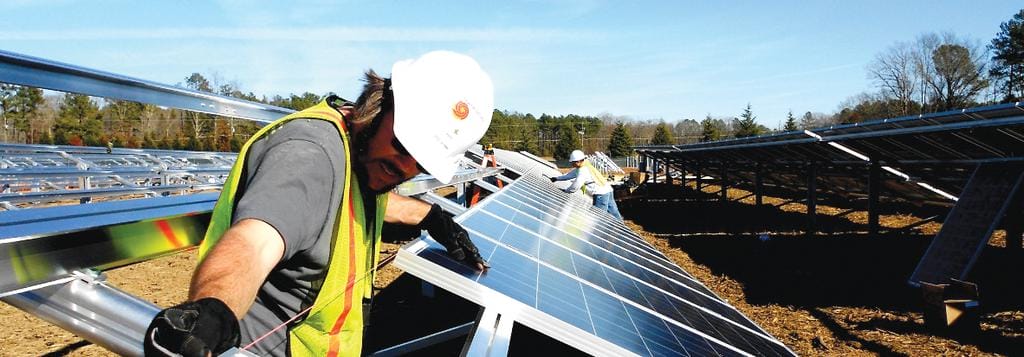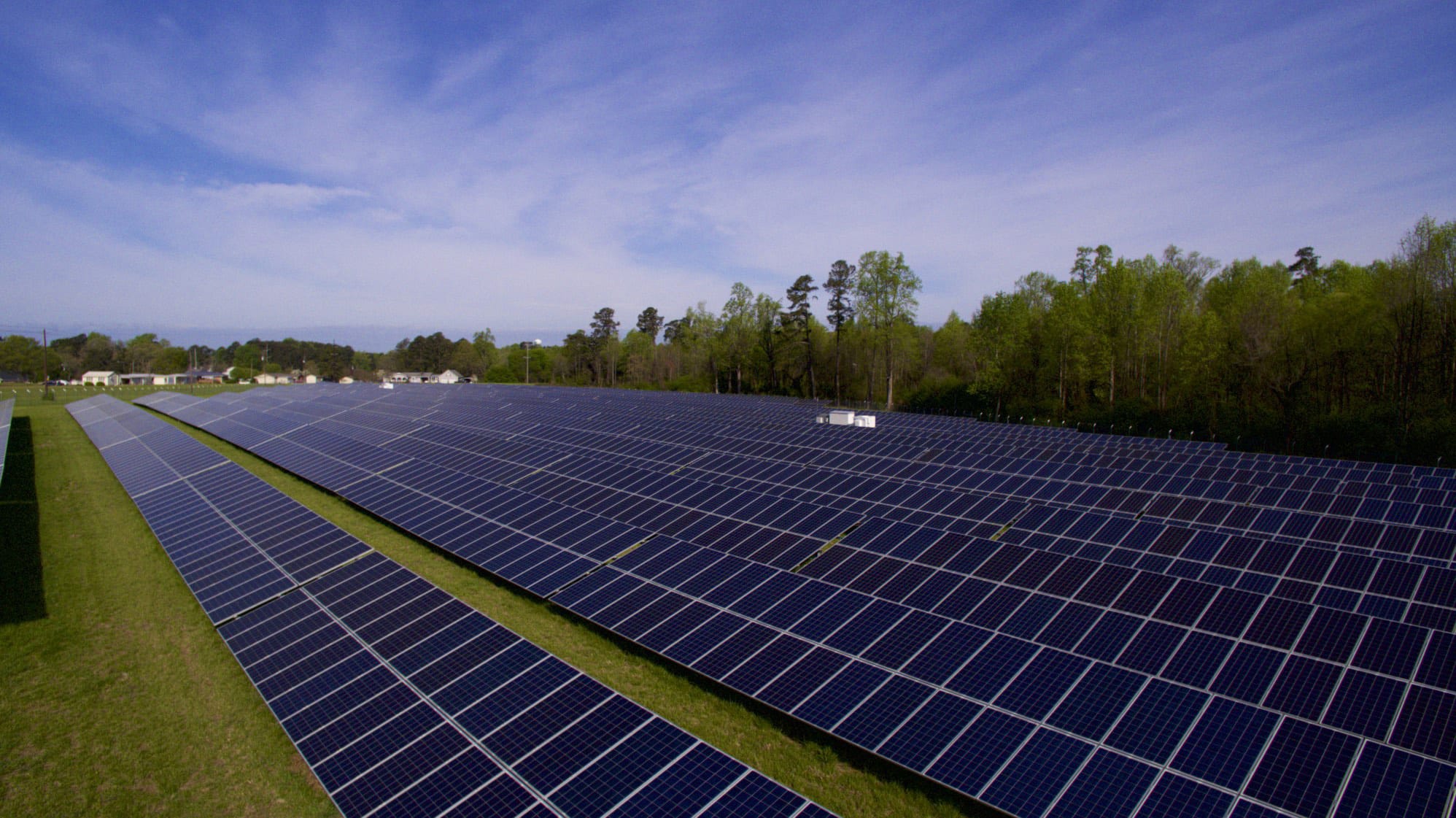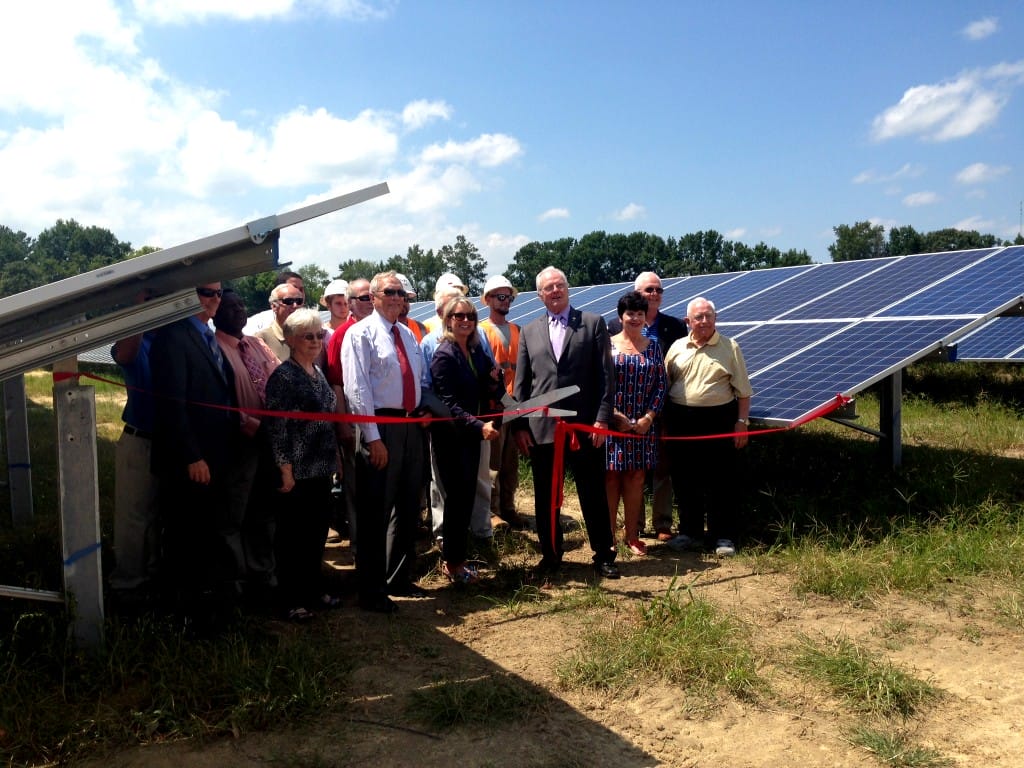North Carolina’s largest solar project moves closer to construction
Strata Solar expects the 65-megawatt farm, three times the size of the largest solar project in the state, to take about 10 months to build once construction starts.
Strata Solar and Duke Energy Progress appear on the verge of announcing an agreement to go forward with a 65-megawatt solar farm in Duplin County that would be the state’s largest to date.
Spokesmen for both companies say they have nothing to announce for now. But both acknowledge the project is proceeding.
And the N.C. Utilities Commission on Monday approved Duke’s request to built a tap line from its 230-kilovolt transmission line at Warsaw to the site of the large solar farm. That brings the project, which Strata has been working on for nearly two years, closer to being built.
Long negotiations
Strata spokesman Blair Schooff, says a project as large as the Warsaw Solar Farm takes longer to negotiate than the 5-megawatt projects that have been Strata’s bread and butter since it started its Dixon Dairy Farm in Kings Mountain in 2011.
He says the Chapel Hill-based company is weeks away from being able to say anything new about the Warsaw project. But he does acknowledge, “We’re feeling pretty good about where we are.”
In the world of independent solar developers such as Strata, no project is built until the developer has a power-purchase agreement with the local utility. It is clear from Duke’s request to the commission that it expects the project to be built. So it appears the companies are at least close to an agreement.
Recent moves
Duke spokesman Randy Wheeless says it is incumbent on Duke to be prepared to connect to the Warsaw site because the company is required to buy the power from the site once it is operating.
“We would have to get ready like this for any large project,” he says.
But the fact remains that Strata filed for for regulatory permission to build the Warsaw project more than 18 months ago. And it is only recently that Duke has taken steps to build the necessary connection.
Size question
Duke first filed a request for permission to build the tap line in late May. That request was delayed briefly while Strata considered whether to reduce the size of the project.
The Warsaw farm was originally proposed at 75 megawatts. But Strata decided in June to build it at 65 megawatts.
(The first news reports about the farm referred to it as a 100-megawatt project. But that is the size measured in direct current, which is how the power is produced. To put the project on the grid, the power has to be converted to alternating current. That takes electricity and reduces the capacity.)
Schooff declined to discuss why the project was cut to 65 megawatts. But he says the engineering work related to that change delayed the project for a few weeks.
More projects
After the project was approved at the new size, Duke renewed its request for permission to build the connecting line.
Schooff says once the Warsaw project is built, he expects it to open the door for more large projects — much as the Dixon Dairy Farm set off a wave of 5-megawatt production by Strata and other developers.
In preparing to ramp up for larger projects and projects in other states, Strata hired Mike Belikoff — who worked for six years for large national developer First Solar — as its chief operating officer.
John Morrison, who had been chief operating officer, is now senior vice president of public affairs and asset management.
Warsaw 2015?
Strata just finished building a 5-megawatt project in Missouri. It expects to finish a 20-megawatt plant in Tennessee in October and a second plant there that size in December.
Strata is looking at several more large projects in the Southeast, Schooff says.
He declined to discuss a specific timetable for starting construction of the Warsaw farm. But he says Strata is confident it will be built.
Once construction starts, he says, it will take 10 months to finish. That makes it likely that the project will be completed next year.
via North Carolina’s largest solar project moves closer to construction – Charlotte Business Journal.


